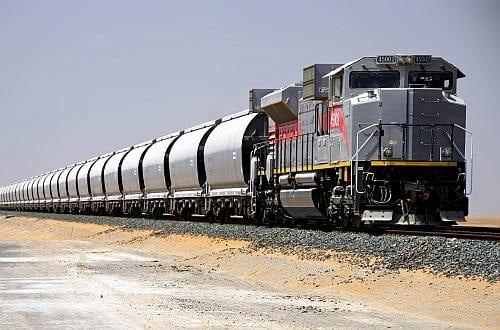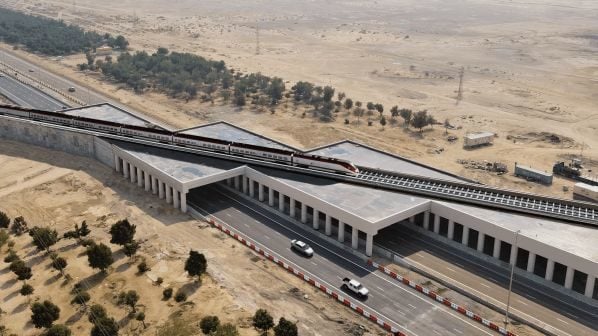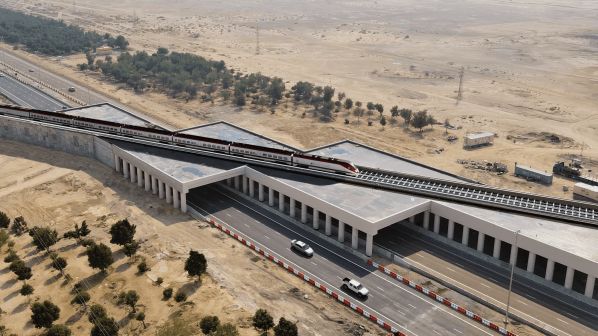THE Gulf Cooperation Council (GCC) has agreed to breathe new life into the stalled project to connect Kuwait, Saudi Arabia, Bahrain, Qatar, the United Arab Emirates, and Oman by rail by confirming a new completion date for the GCC Railway of December 2030.
Meeting in Muscat, Oman, on November 16, the Committee of GCC ministers of transport and communications expressed renewed commitment to the project, as well as agreeing on a 2024 budget for the joint GCC Railway Authority, which was set up last year.
The railway would connect the entire Arabian Peninsula east coast, from Kuwait to Oman, a distance of more than 2000km, which would cost upwards of $US 200bn. Technical details of the planned railway are sparse, other than that the railway will primarily be used for freight, with passenger traffic commencing at a later stage. The line will not be electrified; instead, diesel locomotives will haul freight trains at up to 120km/h and passenger trains at up to 220km/h. The GCC predicts that 95 million tonnes of freight and eight million passengers will be transported annually along the line by 2045.
The six countries originally agreed on the railway in 2009, with expected completion in 2018, but the project met with difficulties from the beginning. At the time, Saudi Arabia was the only country out of the six to have any railway infrastructure at all, and falling oil prices during 2014-16 brought the project to a halt, as funding by the oil-dependent countries involved dried up. Moreover, in 2017, Qatar found itself ostracised by Saudi Arabia, the UAE, Bahrain, and several other countries in the region over issues including Qatar’s relationship with Iran and alleged support for Islamist extremism.
However, having resolved their differences, the countries were able to agree in 2021 to continue the project. By that time, the UAE had completed most of its part of the railway, while construction was at various other stages of development in Saudi Arabia. Oman is pushing ahead with its project to build a $US 3bn 303km railway from the port of Sohar in Oman to Abu Dhabi. However, Bahrain, Qatar, and Kuwait currently have no operational mainline railways at all.
Coordination
This model of leaving it largely to the countries themselves to build their parts of the railway also means that there will be a great need for coordination of a large number of contractors involved, standards, safety benchmarks, and so on, and with the global oil price again in decline, financing could once again become a problem.
In addition, construction itself will also have to take into consideration technical challenges, such as the fast degradation of rails and wheels due to sandstorms.
Nevertheless, in the countries involved, the railway is seen as an important step towards diversification of each of the countries’ economies. The trend towards phasing out fossil fuels has not gone unnoticed in the region, and the countries involved are very aware that new sources of revenue will require improved infrastructure.
For detailed data on rail projects in the Middle East, subscribe to IRJ Pro.



